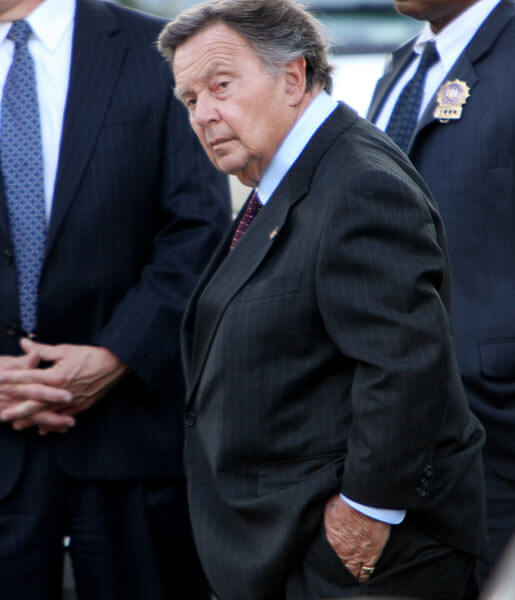By Rich Bockmann
Thousands of convictions in Queens court could be heading for retrial after a state appellate court ruled last week that part of a program run by District Attorney Richard Brown’s office violated suspects’ constitutional rights against self-incrimination.
Beginning in June 2007, Brown’s office began a program of taping interviews with suspects — most of whom were poor minorities — who were ready to be arraigned but could not afford an attorney.
During the interview, an investigator would read from a prepared script prior to advising a suspect of his or her Miranda rights, which are meant to inform a suspect of their right against self-incrimination.
“If your version of the events that day is different from what we have heard, this is your opportunity to tell us your story. If there is something you would like us to investigate concerning this incident, if you tell us about it, we will look into it,” the script read. “This will be the only opportunity you will have to talk to me prior to your arraignment on these charges.”
A four-judge panel in Brooklyn’s Second Circuit Appellate Court last week ruled the language in the script to be unconstitutional and ordered retrials in three cases.
“When the clear and unequivocal warnings devised in Miranda are combined with the information and suggestion contained in the preamble, the message conveyed to suspects is muddled and ambiguous. Correspondingly, when the warnings are combined with the preamble, it cannot be said with assurance that the suspects clearly understood their rights,” the decision read.
“Why is the preamble read before giving the Miranda warnings and obtaining a waiver of rights, instead of after the warnings are read and a waiver obtained?” the judges asked. “If the answer is that suspects are more likely to waive their rights after having heard the preamble, that lends support to the conclusion that … the warnings have been rendered ineffective by the preamble.”
Brown said the program was designed to prevent wrongful conditions and was responsible for dismissing charges against more than 100 people. He said the script was revised three years ago and once again following last week’s decision.
“Today’s decision, which is based almost entirely on the Second Department’s interpretation of federal constitutional law, takes issue not with the program itself but rather with our introductory remarks — remarks which were modified more than three years ago,” he said. “Our current introductory remarks include virtually none of the statements with which the Court has found fault and, importantly, no defendant has ever been questioned without having first been read their Miranda rights.”
The DA’s office said more than 12,000 interviews have been conducted since 2007.
Queens Law Associates is one of two nonprofits with Queens public defender contracts.
Attorney-in-Charge Tim Rountree said those who were convicted or pleaded guilty after being read the script now have new grounds to appeal their cases.
“It’s not an automatic thing. You’d have to scrutinize exactly what was said in those statements and how that occurred,” he said. “It won’t be a wholesale-type of reversals, but rather it will be on a case-by-case basis.”
New York Civil Liberties Union Senior Attorney Taylor Pendergrass said the bigger issue left unaddressed by the court’s ruling was the constitutionality of interviewing unrepresented suspects prior to arraignments.
“There are big questions still with the revised script, pretty serious ethical issues the opinion doesn’t answer,” he said. “The Supreme Court in New York is quite clear that you can’t delay a suspect more than 24 hours before a prompt arraignment. A program that systematically delays arraignments has some pretty serious problems.”
Reach reporter Rich Bockmann by e-mail at rbockmann@cnglocal.com or by phone at 718-260-4574.




































